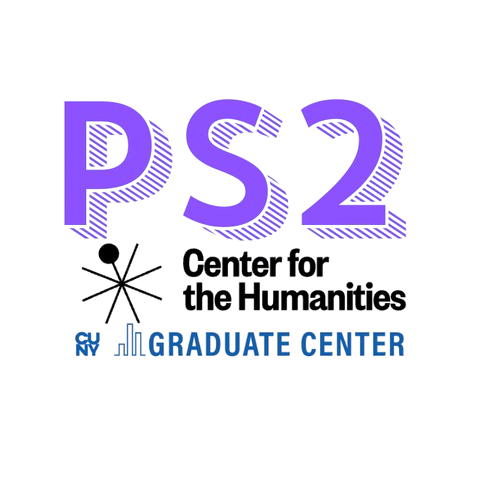
The Public Scholarship Practice Space (PS2) housed at The Center for the Humanities honors the past, present, and future of public scholarship at CUNY Graduate Center. As part of that mission, we are committed to supporting the future of applied, activist, and community-engaged scholarship.
A record 18 doctoral students at the CUNY Graduate Center were awarded ERI/ PS2 Summer Public Research Fellowships this year, with generous funding from the Provost’s Office. This cohort represents a range of programs that have long-championed public scholarship including Anthropology, EES-Geography, English, History, Psychology, Sociology, Theatre and Performance, and Urban Education. We are so excited to see them further their research this summer.
Meet the PS2 Fellows and learn about their work:
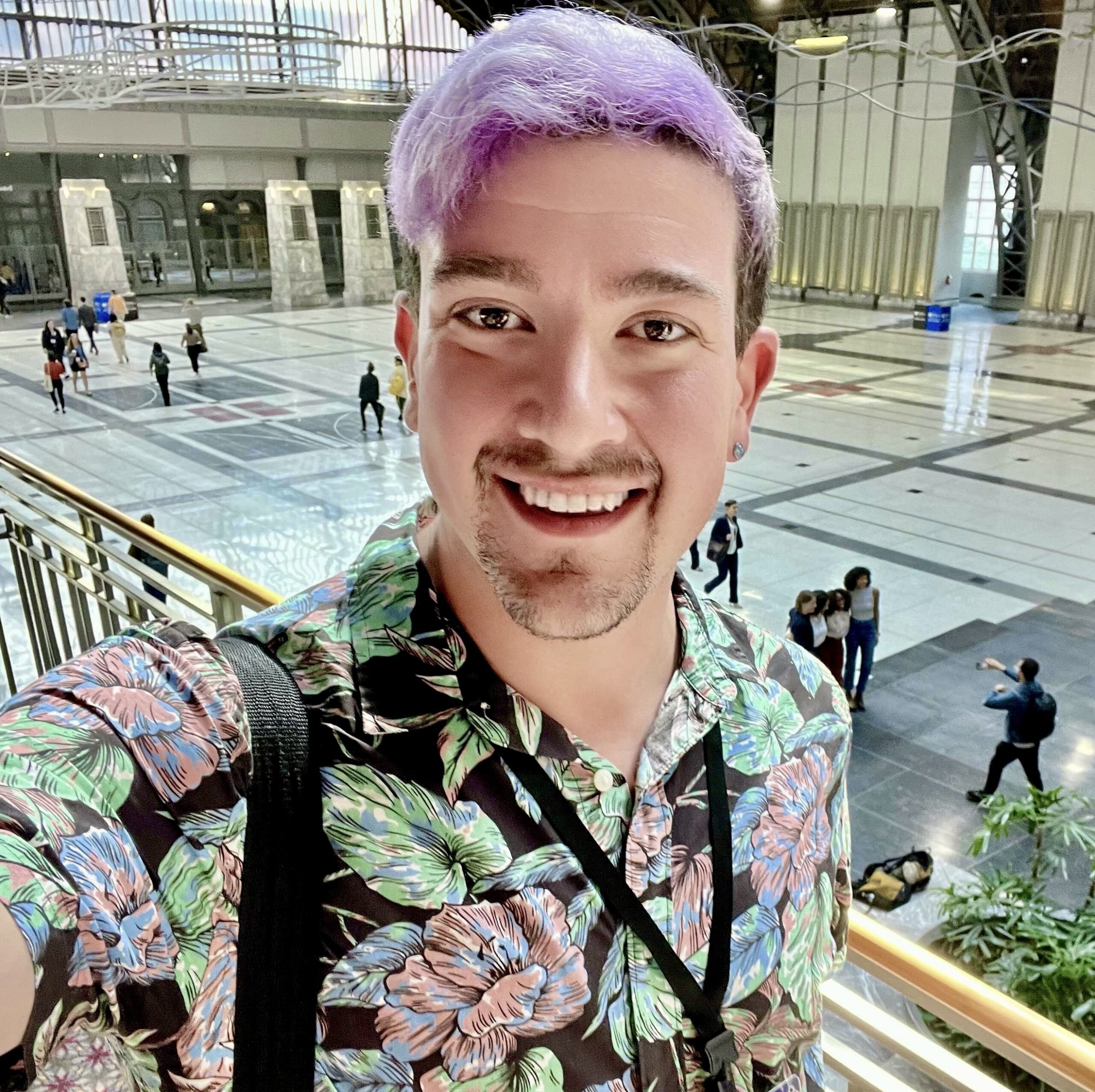
Andrew Shapiro is a Ph.D. candidate in sociology. His dissertation, Hurt People Hurt People, uses archival case studies of LGBTQ movements and Jewish communities to illuminate and counteract tendencies for marginalized people to elevate themselves through complicity in the oppression of others.
I am excited to visit the IHLIA LGBTI Heritage archive in Amsterdam, where I’ll spend two weeks pouring over queer zines, journals, and letters and waxing nostalgic over events from before I was born.
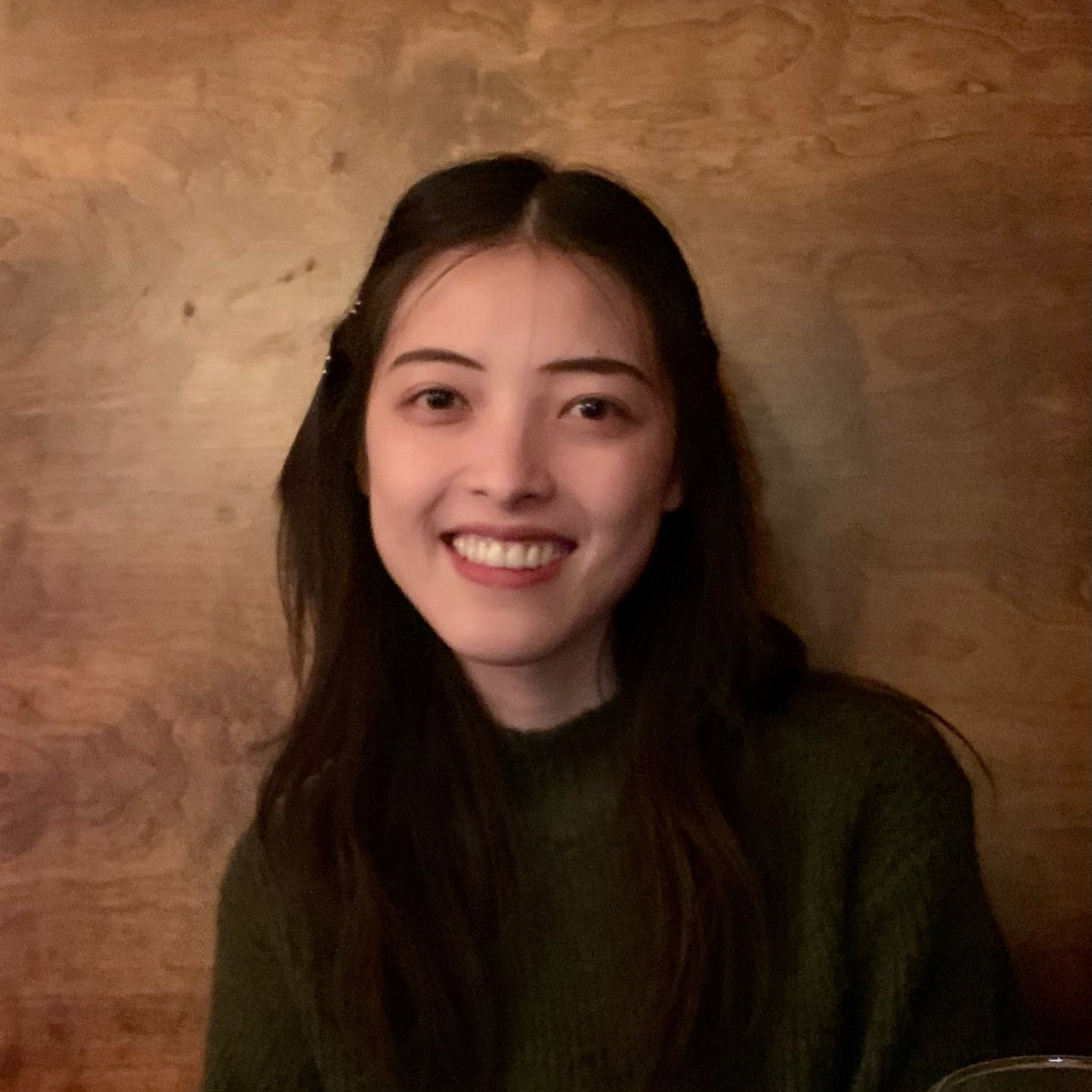
Cen Lui is a Ph.D. candidate in Theatre and Performance. With a broad interest in popular performance, material culture, Eurasia encounters, and historiography, their research traces past lives of humans and objects to understand their entanglement and co-constitution. Cen also explores how we can use digital platforms to tell such histories and stories anew.
I am excited to dive into the history of Cantonese opera groups formed by Chinese immigrants in New York City. Though I will probably spend much time alone in the archive and in front of my computer for this project, I feel extremely lucky to join a community passionate about engaged and public-facing research.
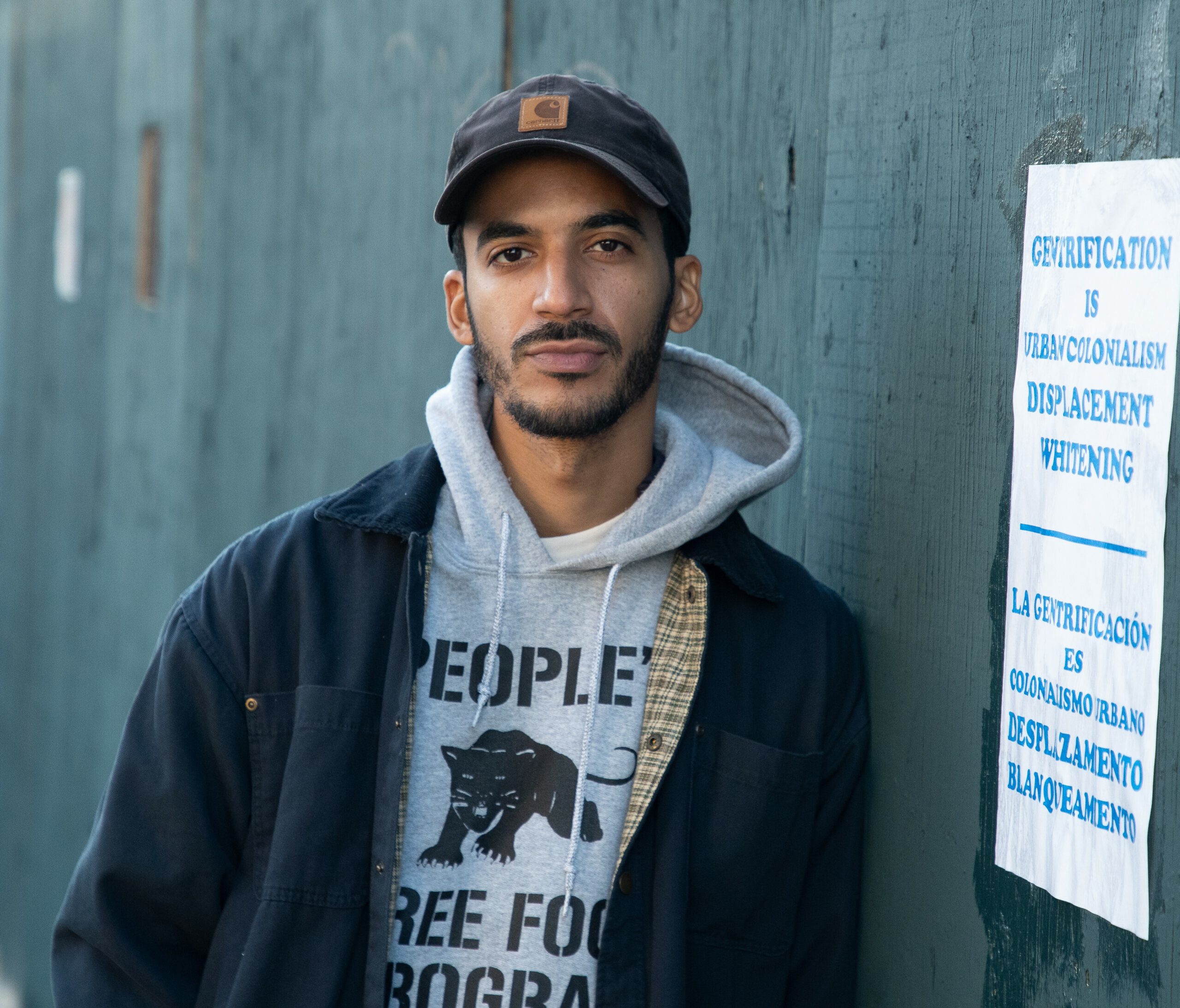
Chris Colón is a visual artist, and scholar-activist from Brooklyn, NY. He is a Ph.D. candidate in the Urban Education program at the Graduate Center. He uses auto-ethnography, arts-based research, and counter-archiving practices to highlight how we can learn from Black diasporic and Latinx practices that exist outside of academia and traditional K-12 education that can help us reimagine pedagogical practices that lead to liberation building.
I am excited to interact with my community through public-facing projects related to my dissertation thanks to the funding provided by this fellowship.

Destry Maria Sibley is an oral historian, digital media producer, and doctoral candidate in English literature at the Graduate Center, CUNY. Her dissertation, “After Mother: Genres of the Maternal in Twenty-First Century American Memoir,” a written text and accompanying podcast, reads contemporary American life writing to recast the mother figure as a genre of the human and object of received knowledge. She is the recipient of a Mellon/ACLS Dissertation Innovation Fellowship, a CUNY Provost Enhancement Fellowship, and a Fulbright-National Geographic Digital Storytelling Fellowship.
I am most excited to spend the summer engaged in deep study of memoirs of queer and trans kinship, as well as testimonies from the NYC Trans Oral History Project, to think towards a different mode of knowing, sensing, and being in motherhood. It is my hope that this research will contribute to new ways of conceiving of the mother figure, the family structure, and the community public.

Enrique Valencia is a first year student in the Earth and Environmental Sciences PhD program. He is interested in the theory and praxis of environmental and climate justice, particularly community-academic partnerships, planning and public governance, and radical imaginations.
I am interested in learning about South Florida’s geography, particularly histories of uneven development and how these impact contemporary climate change planning. Additionally, I am looking forward to connecting with environmental justice communities to learn about how my research can support their advocacy and community organizing objectives.
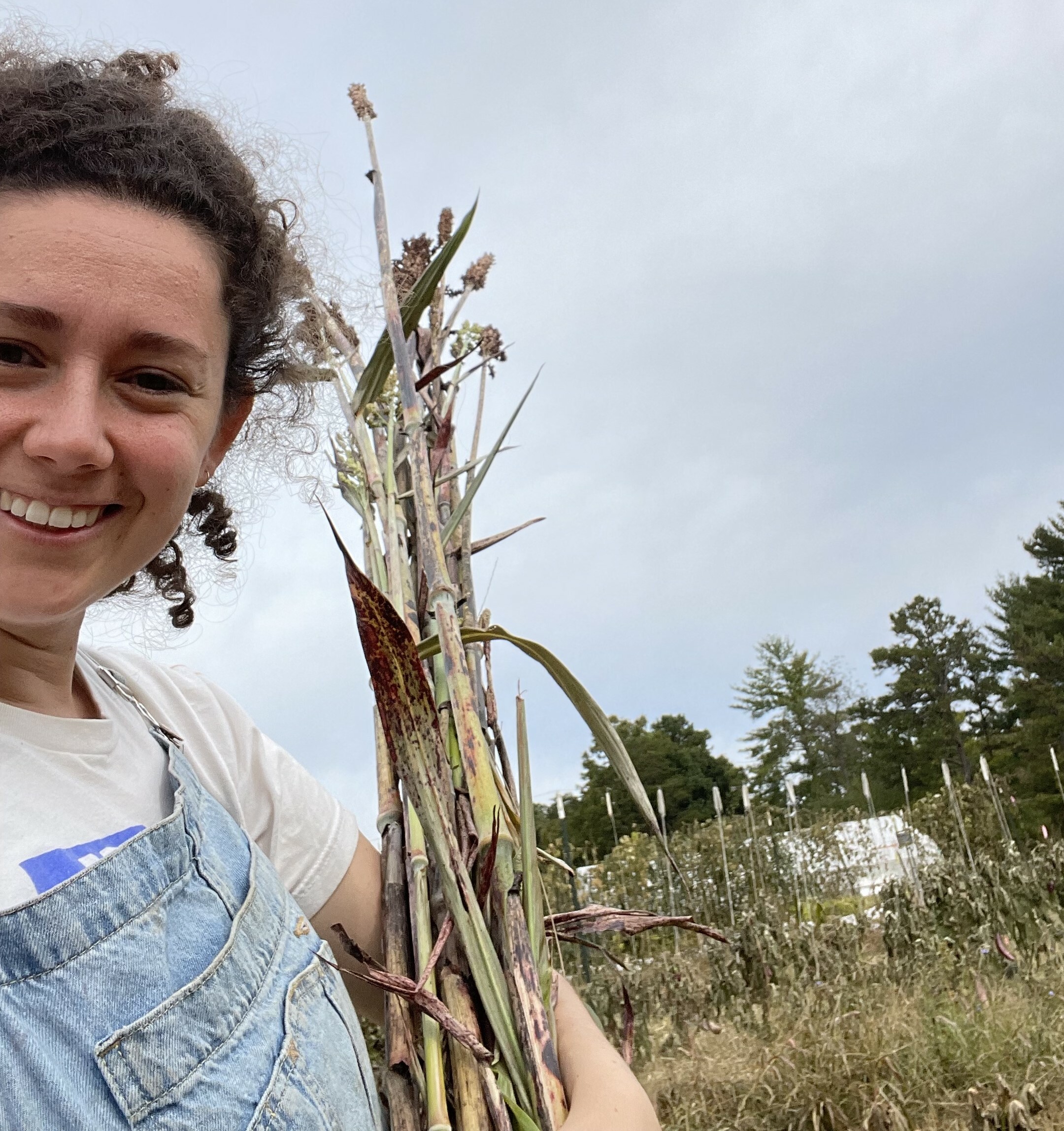
Eva Rose Steinberg is a farmer, seedkeeper, and PhD candidate in anthropology. Based in North Carolina and Georgia, her work examines how plant breeders and seed savers negotiate diversity, purity, and adapting to climate change. She collaborates with the Heirloom Collard Project, the Utopian Seed Project, and is in the process of learning how to breed peanuts.
This summer, I am excited to put plant breeding theory into practice as I experiment with the early stages of adapting peanut varieties to Appalachian climates. I will be growing over 80 peanut varieties in conjunction with the Utopian Seed Project to try to develop an Appalachian peanut to introduce via local seed grower collectives.
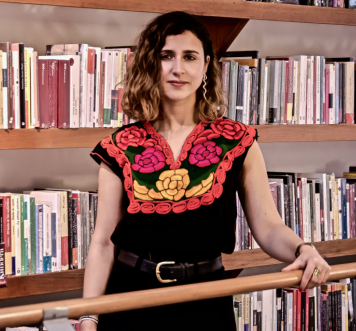
Fátima Vélez is a writer, professor, cultural producer, and Ph.D. candidate in Hispano-American Literature and Cultures at the Graduate Center, CUNY. Fátima’s main interests include contemporary Latin American Literature and Culture, focusing on decolonial feminism, ecofeminism, queer/cuir theories, critical geography, and Civil Rights movements and activism.
I am particularly enthusiastic about the opportunity to enrich my dissertation by going beyond the traditional academic boundaries and exploring innovative formats that resonate with a broader audience. Furthermore, I am eager to immerse myself in the methodologies of community theater, with the ultimate goal of developing workshops that offer alternative approaches to understanding interdependence within war-impacted contexts.
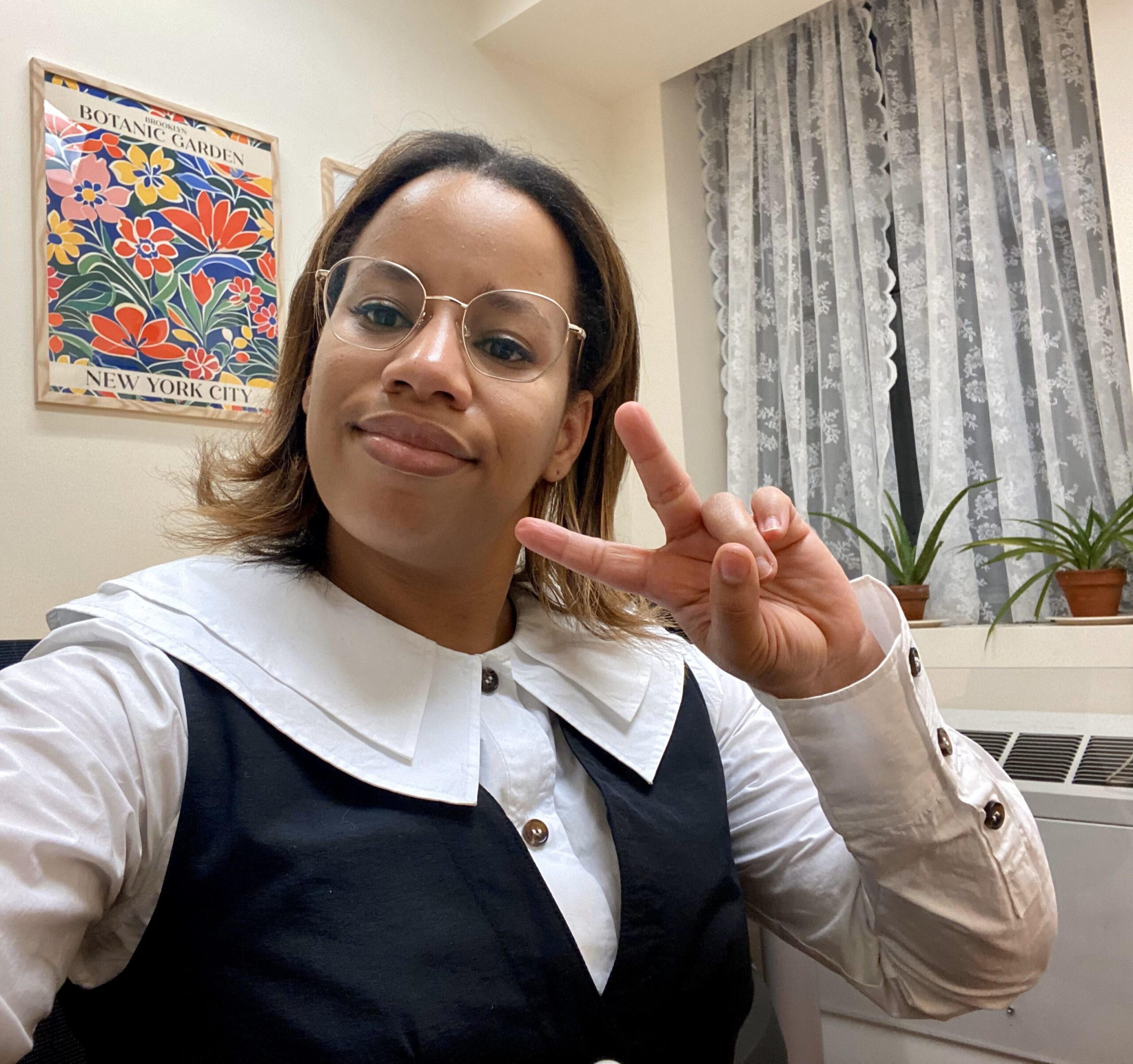
Frances M. Howell, MA (she/her) is a PhD Candidate in Critical Social/Personality Psychology. Frances’ research focuses on gendered racism in reproductive health care settings, fertility care, discourses of power and the reproductive body, and these topics impact mental health.
I am excited to integrate my previous background in art and design with qualitative research to co-create a quilt representing Black people’s fertility stories. These quilts serve two purposes: to center Black quilting traditions as an ethics of care into research practices and to create a material representation of what it’s like to be a Black person who uses assisted reproductive technologies to preserve and treat fertility.
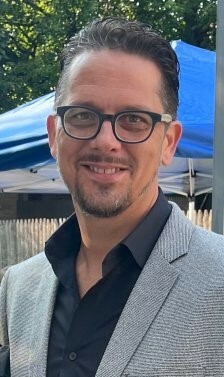
Jakob Kendall Schneider is an activist-scholar PhD candidate in the environmental psychology program at the City University of New York (CUNY) Graduate Center. He serves on the board of directors of the East New York Community Land Trust in Brooklyn, New York. His work has been published in Housing Policy Debate and Antipode: A Radical Journal of Geography.
Through the fellowship, I will continue my collaborative research with the East New York Community Land Trust that explores the ways in which community land trusts contest and rework housing financialization under racial capitalism. I am excited to delve more deeply into the mechanics of transforming New York City’s racist practices of handling property tax debt into a pipeline for social housing that will keep people in their homes.
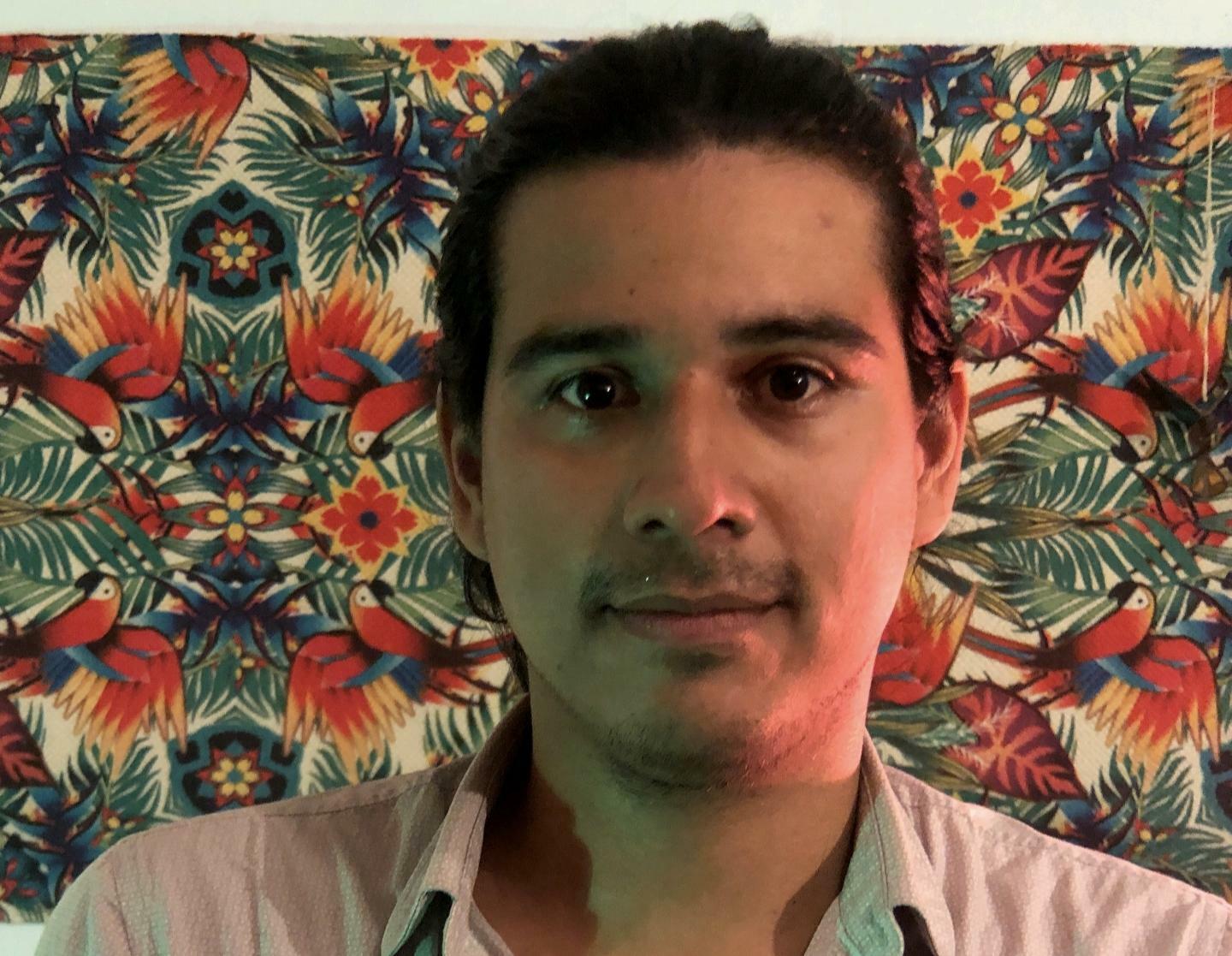
Juan Carlos Garcia Rivera
Juan Carlos Garcia Rivera is a doctoral student of Critical Psychology from El Salvador. Among his research interests are forced displacement from Central America, specifically from the lens of mental health professionals, qualitative/participatory methods in psychology, and interdisciplinary inquiry/pedagogy. Currently, he is developing a dissertation about Critical Ecopsychology for the Dry Corridor of Central America.
What excites me about starting my fieldwork during the summer is networking with other scholars involved in psychological research for environmental justice, as well as planting the seeds of trust and collaboration with potential participants, who represent multiple generations, standpoints, territories, and ecosystems in El Salvador.
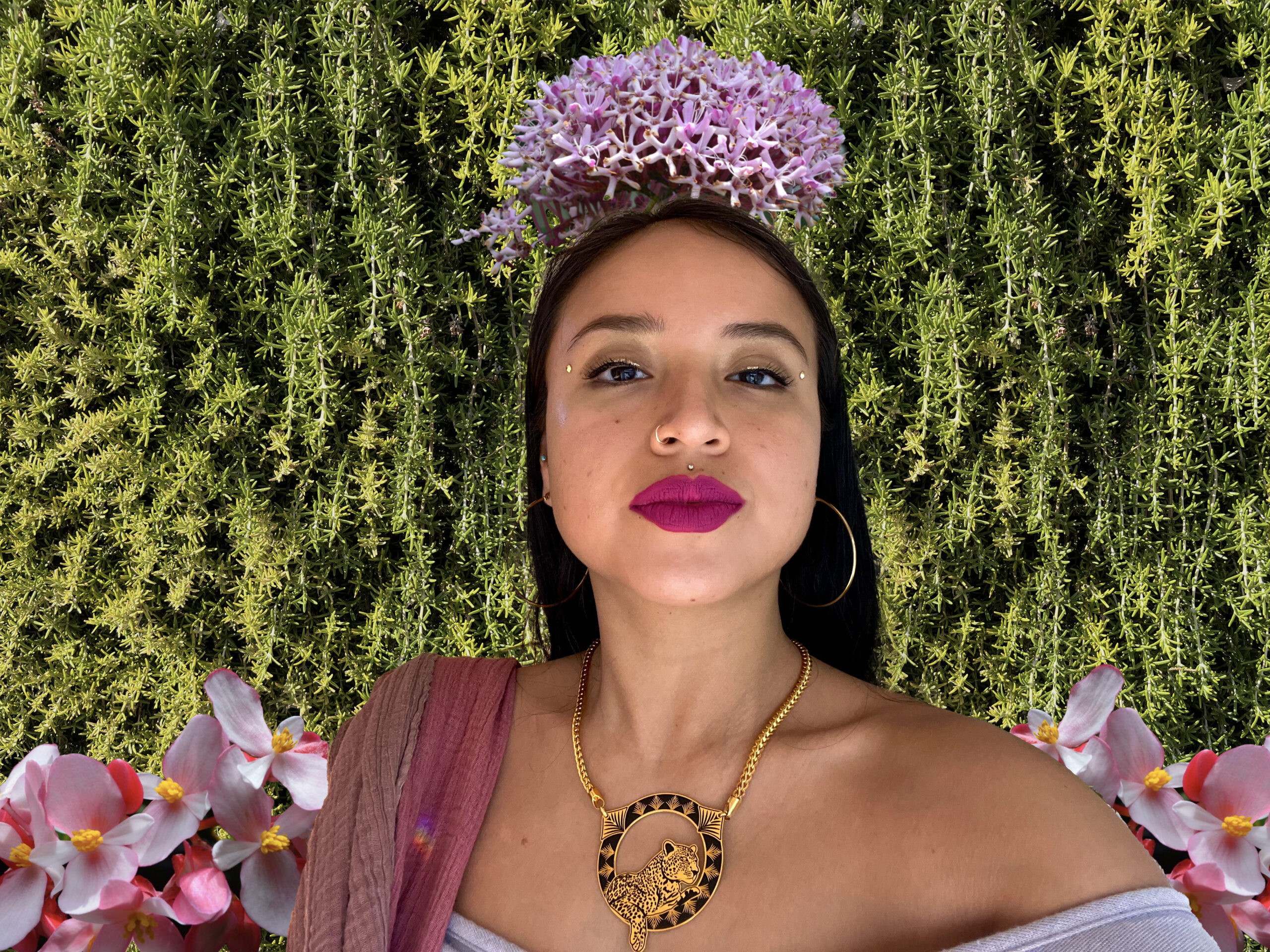
Joanna Beltrán Girón‘s (she/they) activist research centers the wisdom of Salvadoran survivors of the U.S.-backed war who are at the forefront of historical memory activism through the use of various storytelling techniques such as body maps, embroideries, archives, testimonies, poetry, & speculative fiction.
I am most excited about co-creating knowledge with my community members through the testimonial interviews and the writing activities (poetry, speculative fiction writing).
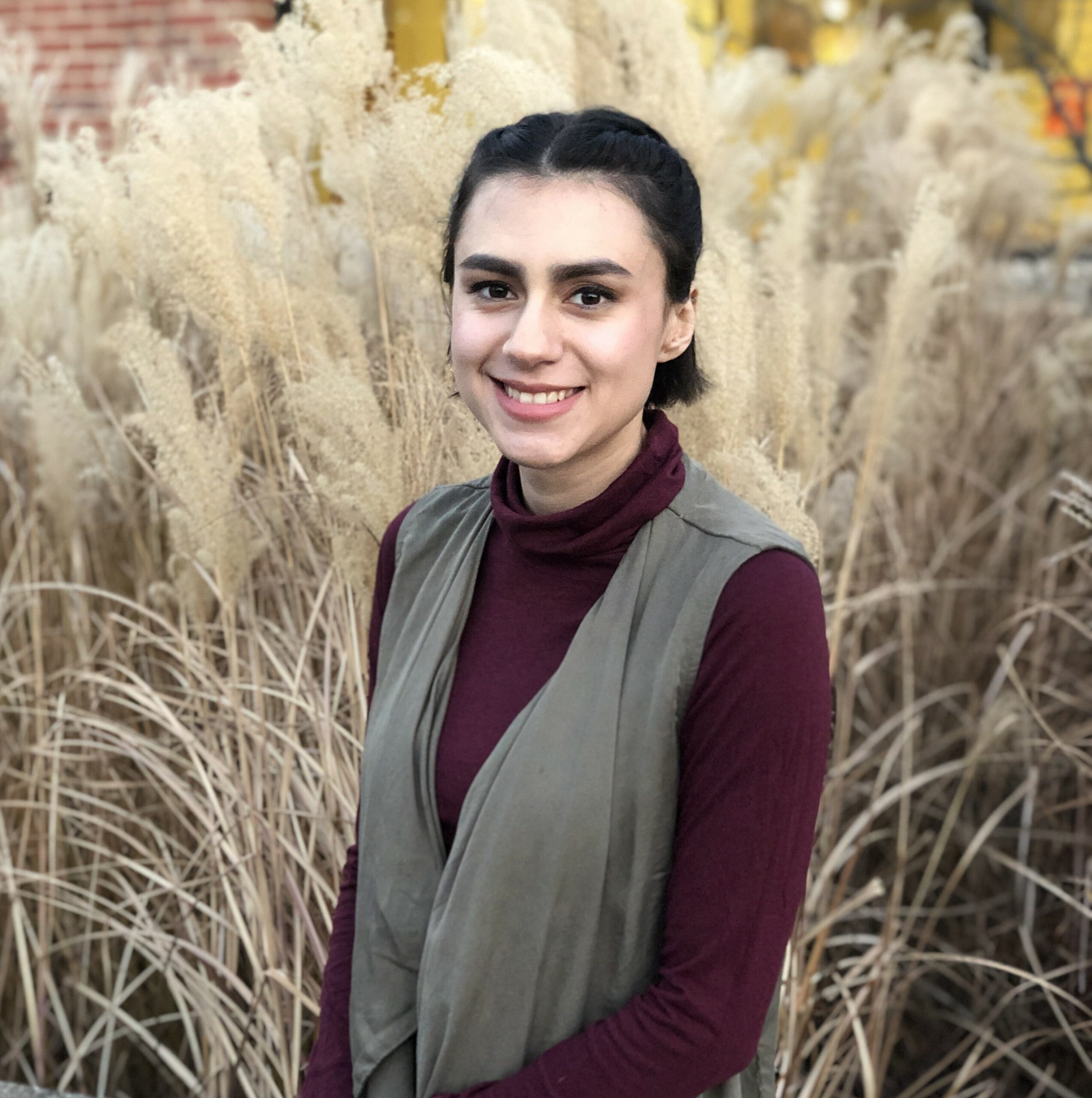
Lilianna Quiroa-Crowell is a PhD candidate in Cultural Anthropology, studying the spatial experience of urban Indigenous Q’eqchi’ women in the Caribbean banana port city of Puerto Barrios, Guatemala. Her dissertation explores how the organizing and unique spatial epistemologies of these erased women, residing on the invisible urban edges, have unsettling effects on the larger exploitative power dynamics and spatial arrangements that structure daily city life. Her methodology includes participatory photomapping, in which groups of local women drew maps and took photos of their communities, culminating in a public exhibition of these “forgotten spaces” from a local perspective.
As a fellow of the Public Scholarship Practice Space (PS2) at The Center for the Humanities I am excited to expand the public exhibition of the women’s photomapping project in Puerto Barrios this summer, as I will coordinate two additional public displays in the local communities and an interchange forum between the women photomappers. As a fellow, I look forward to dialoguing with other scholars in interdisciplinary exchange in order to share creative ways to continue engaging with urban Indigenous communities in Guatemala throughout my career.
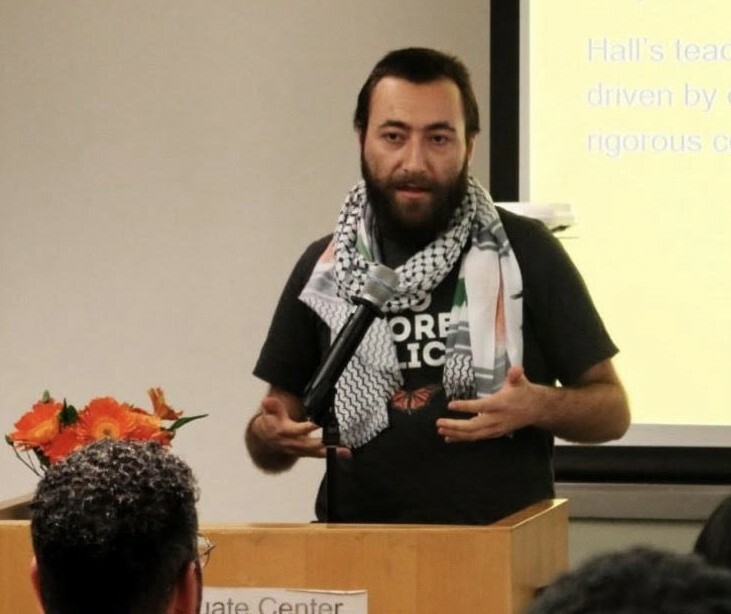
Lucien Baskin
Lucien Baskin is a student in Urban Education where they write about histories of organizing at CUNY. Their writing on campus policing and abolition appears in Truthout, Radical History Review, Society and Space, LeftVoice, and Cops On Campus, and they are editing a collection of Stuart Hall’s writings on education. Lucien organizes with CUNY for Palestine, co-chaired the Cops Off Campus Coalition, and is a rank-and-file member of the PSC.
This summer, I am excited to dive into the archives of educators in the SEEK Program at Queens College and research a radical piece of CUNY’s history that I know very little about. I am also looking forward to the possibilities for collaboration—with archivists at Queens College and the Lesbian Herstory Archives, students, faculty, and staff at the Center for the Humanities, and scholars doing connected work.
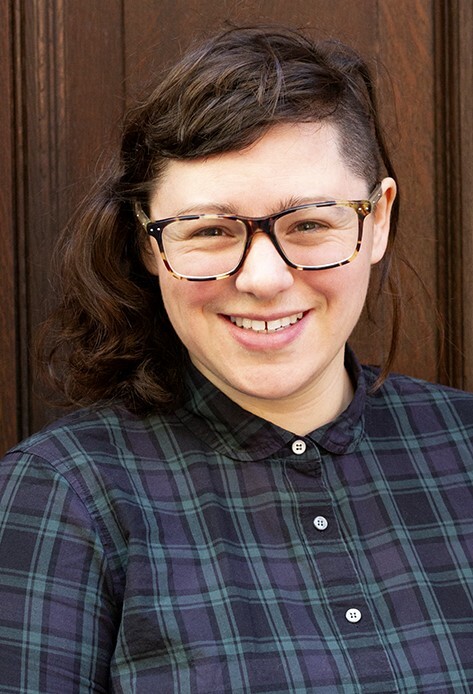
Maggie Schreiner is a PhD student in History. Her research focuses on queer and trans organizing for affordable housing in New York City between from the 1960s to 2010. Maggie has over a decade of experience working at the intersection of archives and public history.
This summer, I am excited to host a series of public events to initiate a conversation about how my research can best reflect the needs of present-day housing justice activists! I will share back my current research and gather suggestions and desires which I will use to develop my dissertation proposal.

Maya Tellman is in her fourth year in Sociology at the Graduate Center. She is a founding member of YouthNPower: Transforming Care, an intergenerational collective working to explore, document, and uplift the power, needs, and desires of young people transitioning out of foster care as young adults in New York City.
The Summer Public Research Fellowship will allow me the space to build on my existing work with young people directly impacted by the foster care system in New York City. Through interviews and participatory analysis sessions, I hope to begin to untangle how young people transitioning out of care construct notions of independence, adulthood, and personal responsibility in their own lives.

Michelle Rendón Ochoa (she/her/ella) is a first-generation Colombian American educator and Ph.D. student in Urban Education at the Graduate Center, CUNY. As a scholar-activist, she is on a mission to blend community-based research, arts-based methods, and the co-creation of digital archives with youth in her community. Her commitment extends to preserving and reshaping the counternarratives of the Latine community in suburban Long Island, a vital endeavor she aims to interweave into curricula.
I am excited to collaborate with youth co-researchers as we engage in preliminary analysis of Latine oral histories we conducted in our community. Over the summer, we will organize the oral histories in a digital repository to share with community partners. I look forward to co-authoring a future publication with my youth research team in which we amplify scholarship on Latine suburbanization and suburban schooling.

NataliaLara is an international doctoral student from Mexico in the Critical Social Psychology Program. Their research focuses on affect theory, ethnography, body studies, decolonial methods, consciousness, and phenomenology. Natalie is particularly interested in how affect (emotion) travels within and between bodies.
I am excited to utilize a decolonial method that challenges forms of meaning making and knowledge production. I am especially interested in producing research that evokes a felt response in readers.
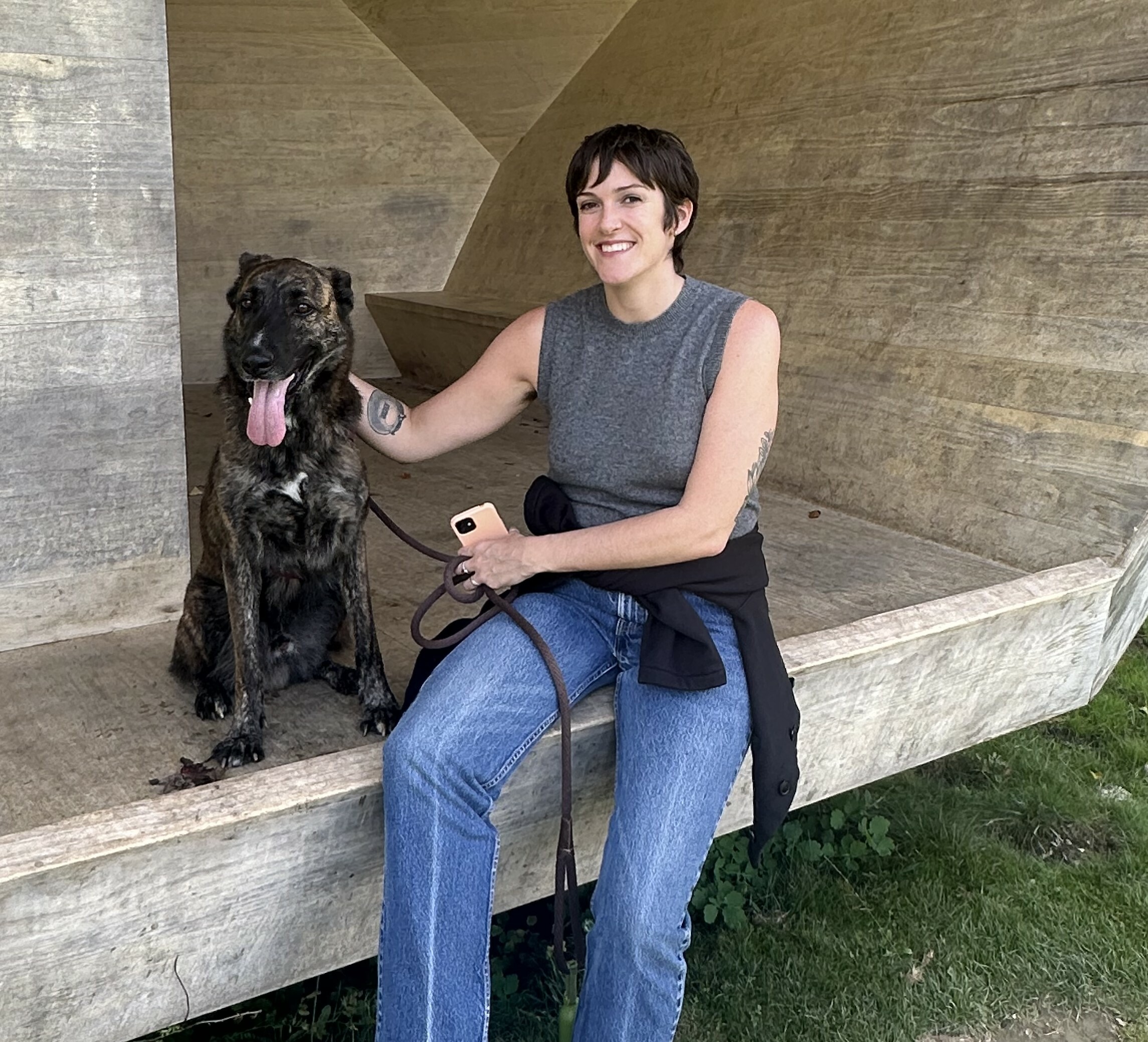
Terra Graziani is a researcher and tenant organizer whose work focuses on property, race, and personhood. She helps run the Anti-Eviction Mapping Project (AEMP), a digital storytelling collective documenting dispossession and resistance in solidarity with gentrifying communities through research, oral history, and data work, and she founded the Los Angeles chapter. She is currently a doctoral student at CUNY Geography and a researcher at UCLA’s Institute on Inequality and Democracy.
As a Public Research Fellow, I am excited to do research that helps situate the tenant movement of today in a longer history of struggle to un-do property. I hope to excavate materials from the archive that remind us of our shared histories and collective power.
2024 PS2 Fellows

Lucien Baskin

Enrique Valencia

Lilianna Quiroa-Crowell

Maggie Schreiner

Maya Tellman

Michelle Rendón Ochoa

Natalia Lara

Terra Graziani

Andrew Shapiro

Cen Liu

Chris Colón

Destry Maria Sibley

Eva Rose Steinberg

Fátima Vélez

Frances M. Howell

Jakob Kendall Schneider

Juan Carlos Garcia Rivera

